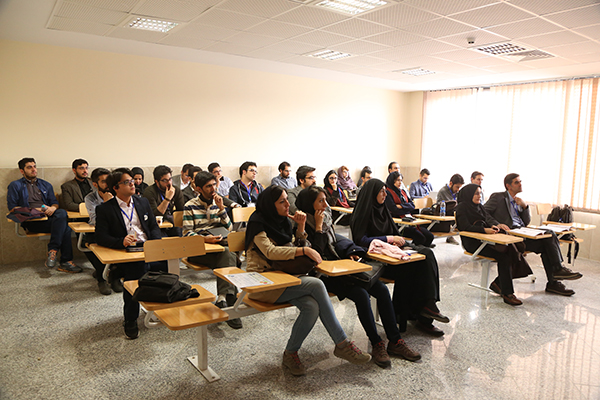
Dr. Hamed Ghafarirad, Amirkabir University of Technology
Applications of soft pneumatic bending actuators and manipulators in rehabilitation and auxiliary assistant robots and grippers are significantly increasing. Despite many investigations on free motion modeling, understanding how these robots interact with the environment requires more detailed research. It is caused by high compliance and nonlinearity of soft material, which leads to serious challenges in contact conditions. Indeed, conventional Constant Curvature (CC) and Piecewise Constant Curvature (PCC) assumptions will not be more valid. In addition, due to non-uniform deformation, common sensors cannot present the precise information. In this session, we will talk about new compound analytical methods to model the static and dynamic behavior of soft actuators in contact. In addition, alternative approaches for external force estimation and control will be discussed in soft gripping mechanisms.

Dr. Ali Leylavi Shoushtari, Wageningen University & Research
Soft Robotics is a young yet promising field of research aimed to enhanced robots’ safety and adaptability while keeping them simple and affordable. In agro-food robotics, crops are usually delicate, having high variability (i.e. different shape, size, surface texture/roughness and softness) and are affected by environmental conditions e.g. moisture and dust which makes them challenging to handle using conventional rigid robots. The abovementioned features of soft robotics can significantly contribute to the robots’ versatility, making it a perfect solution for the agro-food robotic challenges. To achieve this goal, I try to answer the question of how and to what extent soft robotics can enhance the versatility of robots specially in grasping and manipulation. In particular, I would present two main approaches toward soft versatile robots i.e. engineering-based and bio-inspired design of novel soft robotic components with some research examples. For instance I will present some works on morphing grippers that can passively adapt to the object with complex shapes together with an active adhesive interface for safely handling delicate crops.
Hybrid rigid–continuum robot design addresses a range of challenges associated with using soft robots in application areas such as robotic surgery. Utilizing such robots poses challenges beyond standard rigid-body robots. A fast, reliable, accurate yet simple dynamic model is important to support the design, analysis, and control of hybrid rigid–continuum robots. In our recent work, we developed a modelling package for hybrid rigid–continuum systems, named TMTDyn. It utilizes four different continuum robot kinematics representations: (i) series rigid-link, (ii) piecewise constant curvature discretization (discretised Cosserat based on relative states), (iii) Finite Element Method (discretised Cosserat based on absolute states), and (iv) reduced-order shape interpolation. TMTDyn features real-time simulation, via optimized C++ models, inverse jacobian, and load compensation formulations for controller and observer designs. TMTDyn benefits from an internal domain-specific language (DSL) using Matlab’s Object-Oriented capabilities and the concept of fluent interfaces to improve validation, understandability, and maintainability of the constructed models. In this presentation, we showcase modelling a variety of continuum robots with TMTDyn such as pneumatically and tendon actuated, concentric tube, and growing robots, following by a discussion on the controller design, language implementation, the benefits, and challenges of building a Matlab-internal DSL.

Dr. Majid Taghavi, Imperial College London
In this talk, I will briefly discuss our inspiration and motivation to develop soft robotics and highlight the demands to deliver a new generation of soft transduction technologies including energy harvesters, sensors, and actuators. I will discuss the current challenges of developing soft transducers, matching the capability of their biological counterparts, and show my approaches to tackle them. I will particularly show how multifunctional transducers generated by the integration of various material, structural and physical functionalities have potential to introduce new smart materials and intelligent structures for real-world soft robotic applications. It will include my research on self-powered sensors, self-sensing actuators, and variable stiffness artificial muscle.




